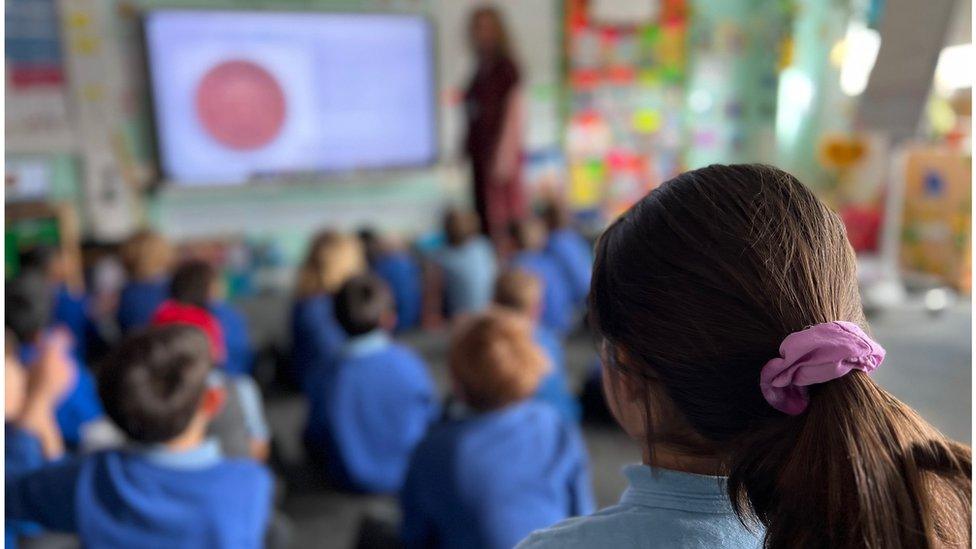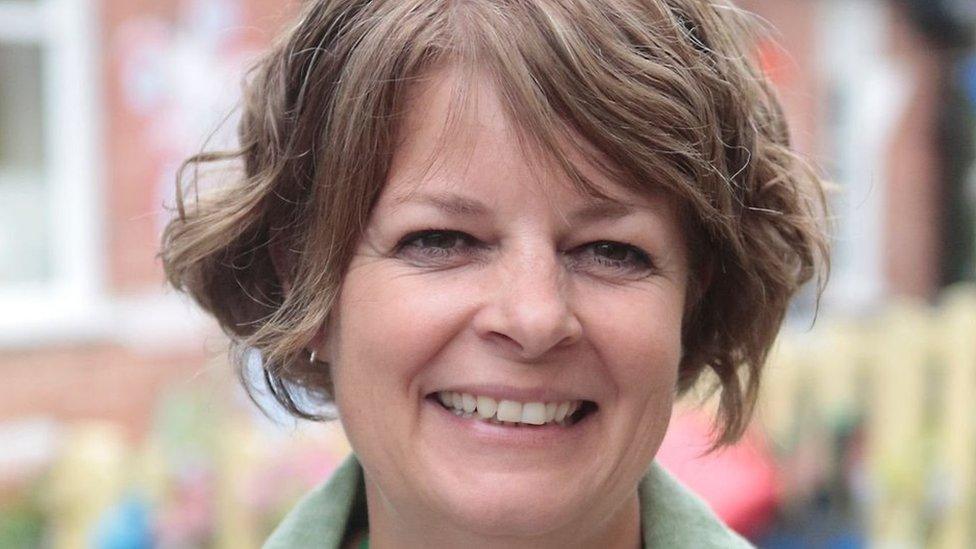Ofsted and Ruth Perry: MPs launch inquiry into school inspections
- Published

MPs will look at whether inspections help schools improve
MPs have launched an inquiry into Ofsted's school inspections, looking at how useful they are to parents, governors and schools in England.
The suicide of head teacher Ruth Perry led to a debate about how Ofsted works.
Education Select Committee chairman Robin Walker said Ofsted had an important role, but there had been a "notable groundswell of criticism".
Ofsted welcomed the inquiry and said it had already made changes in response to concerns, with a focus on children.
The inquiry, external - by cross-party MPs on the committee - will not look at the circumstances around Ruth Perry's death. Those will be examined fully in an inquest later this year.
She took her own life while waiting for publication of a report downgrading Caversham Primary School from Outstanding to Inadequate, over how it kept children safe at school.
MPs will consider how inspections affect the workload and wellbeing of school staff and pupils, and what contribution its reports make to helping schools improve.
Among the issues likely to be discussed are the current system of awarding one overall grade to a school, and whether it is right to automatically deem a school as inadequate if inspectors raise concerns about child welfare.
Mr Walker said keeping children safe was a vital part of inspection but "ensuring that inspections are proportionate, timely and reasonable is essential to build trust", especially after Mrs Perry's death.
Mrs Perry's sister, Prof Julia Waters, said she was delighted there would be a "proper investigation into the inspection system" that would "hold Ofsted to account".
Parents, school governors, teachers and unions will be able to submit evidence, alongside the government and Ofsted itself. The committee will also look at the complaints process, which schools say has made it almost impossible to challenge a judgement.
A primary school in Cambridge recently managed to have its inspection report scrapped - but only after launching a legal challenge. It had previously failed to overturn the rating via Ofsted's complaints process.
Changes announced by Ofsted on Monday include a plan to escalate complaints more quickly to an independent adjudicator.
Head teachers' union, the NAHT, was among those to say the changes already made have not gone far enough. General secretary Paul Whiteman said he hoped the committee "will listen carefully to the experiences and concerns of the profession and help bring about much-needed change".
Chief inspector Amanda Spielman welcomed the inquiry launch, adding that Ofsted was particularly focused on "how we can contribute to reducing the pressure that is undoubtedly felt by school leaders around inspection".
However, she added: "I think it is fair to say that a great deal of that pressure does relate to the perceived consequences of inspection - it's not just about the process itself."
She said the government, and not Ofsted, had responsibility for the consequences of inspection - such as support or interventions which a school might need following a report.
The Department for Education said it funds the charity, Education Support, external, to provide wellbeing help for school leaders. That programme will be doubled in size to support an additional 500 heads by March 2024.
A spokesperson welcomed the inquiry, adding: "We will continue to work with Ofsted, the sector and Ruth Perry's family to improve the way schools are inspected."
Ms Spielman is due to step down from Ofsted this year, and a new chief inspector will take over.
Mr Walker said the inquiry could provide a "rounded, nuanced examination" of Ofsted, to inform the work of her successor.
If you have been affected by any of the issues raised in this story you can visit BBC Action Line.

Watch the story of head teacher, Ruth Perry, who took her life after her school's rating was downgraded by Ofsted.

Related topics
- Published12 June 2023
